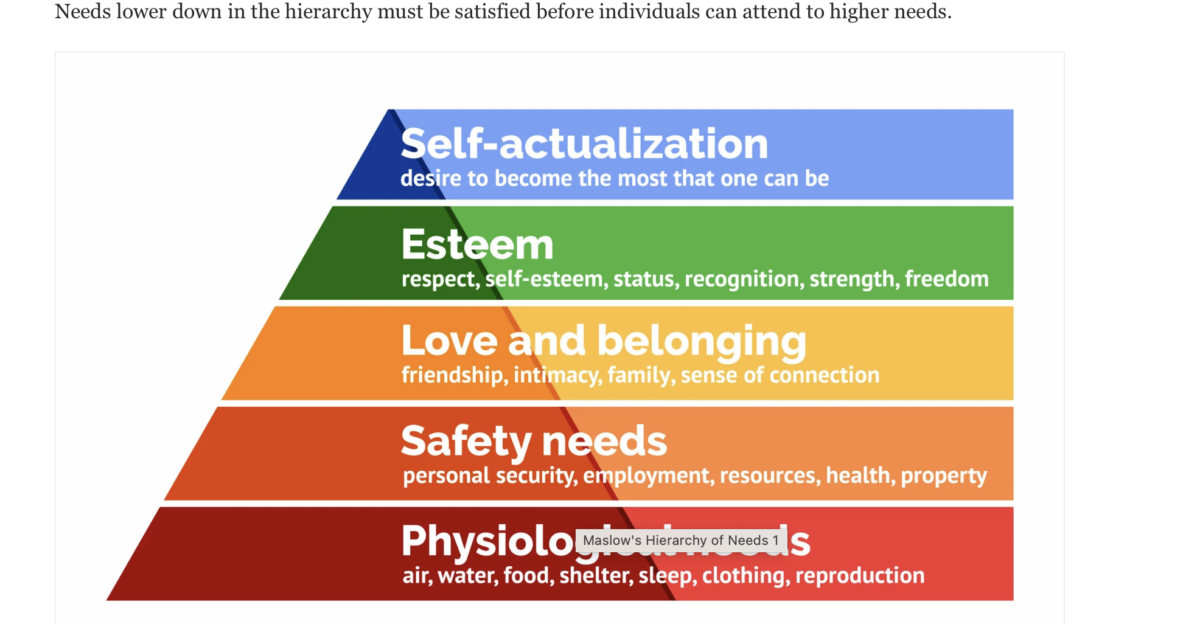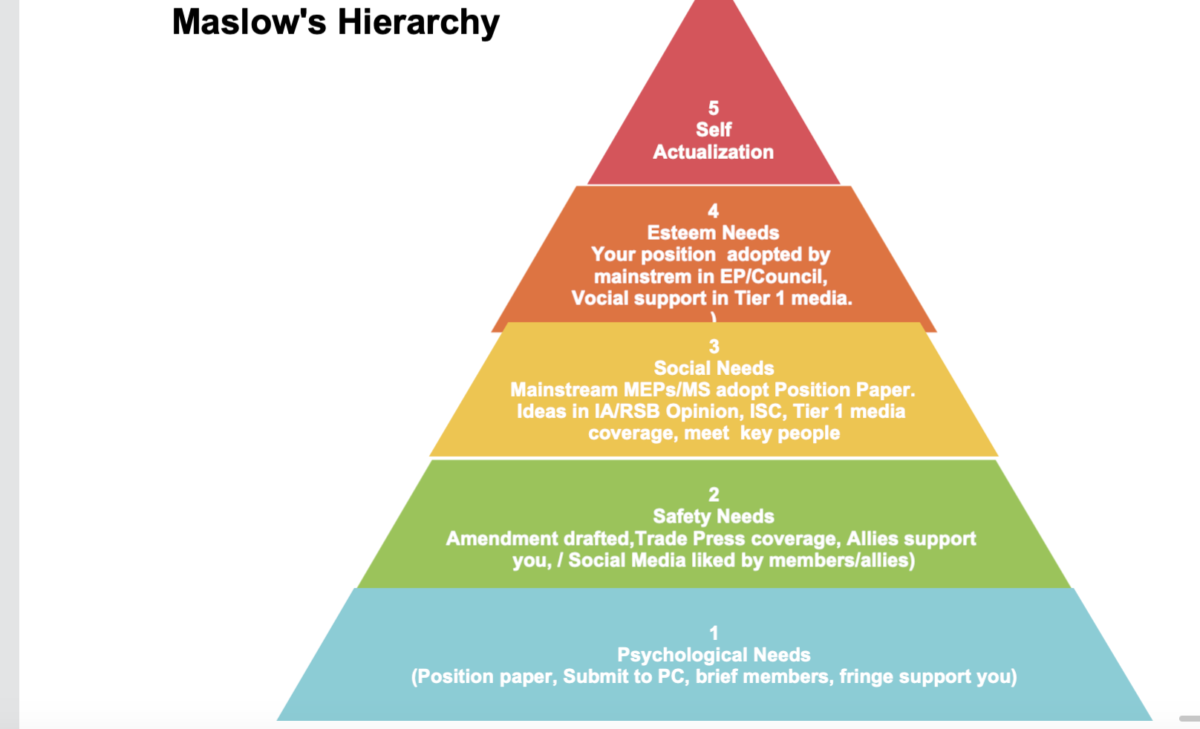There are lots of ways I’ve seen success measure measured in lobbying.
This is my list.
-
Your idea is mainstream. It is a non-issue. Your issue and solution are adopted without a second thought.
-
Your members/supporters/client is happy. If the people paying for the work are happy, that’s important.
-
The law/policy you worked for is implemented and delivers the results you hoped for. That’s important in the EU. Implementation in some areas, like Environment, is dire.
-
You get your issue adopted into the law/policy.
-
You are trusted by the political mainstream in the Commission, EP and Member States. If you are not trusted and seen as credible, there is not much you can achieve. So, being trusted is vital.
-
Your idea and solution are tabled by the political mainstream in the Council, or EP, or preferably both. The votes to get it adopted are comfortably in place.
-
You meet the key 20 players in your file, and a comfortable majority support you.
-
Your media position is vocally supported by key political interests.
-
You get positive media attention in Tier 1 media.
-
Your idea and solution are opposed by the political extremes in the Council and EP. I’ve won many votes by noting who was against the position. Ordinary decent people will back you because the interests they oppose are against you.
-
Your idea/solution is taken up in the Commission’s proposal.
-
Your ideas and evidence are reflected in the Commission’s Impact Assessment.
-
Your ideas and evidence are mentioned positively in the RSB opinion.
-
Your position is backed by several DGs in the Inter-Service Consultation.
-
Your ideas mentioned by Member States in the Public Consultation.
-
Your ideas mentioned by others in the Public Consultation.
-
A group of influential Member States issue a position paper pre/post proposal mirroring your own.
-
A group of influential MEPs issue a position paper pre/post proposal mirroring your own.
-
Your press release gets picked up in the specialist press.
-
Your usual political allies support you.
-
You get an interview in ‘Whips & Rubber’* monthly to give your views on a proposal.
-
The Political Fringe – the likes of Roger Helmer MEP or Hungry – come out supporting you.
-
You manage to get a position paper published just before the EP/Council reach an agreement.
-
Your social media campaign liked by members/supporters/allies.
-
You hold a briefing for your supporters on the proposal, and they turn up.
-
You manage to draft some amendments.
-
You turn up & participate in the public consultation.
- * Whips & Rubber monthly symbolises the obscure specialist media outlets for every issue I’ve worked on. Apologises if it exists.
- Looking at Maslov
- For me, only the top 5 count. They are the moments of political transcendence. 1 is the ultimate moment of self-actualisation.

Source: https://www.simplypsychology.org/maslow.html
Re-creating Maslovw’s hierarchy, it would look something like this.

Self-actualisation would be the last 5 items: idea mainstream, members/supporters happy, issue adopted into law and implemented, and you are trusted. If you don’t get 3 and 4, everything you have worked for has been for nothing.